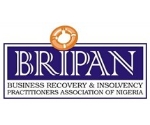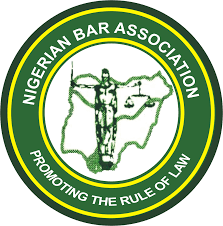Navigating Regulatory Compliance for Foreign Investors in Nigeria
Introduction
For foreign investors considering opportunities in Nigeria, understanding and navigating the country’s regulatory landscape is essential. Nigeria offers immense potential for foreign businesses, but it also presents unique challenges in terms of compliance with local laws and regulations.
This article serves as a guide for foreign investors looking to establish and operate businesses in Nigeria, shedding light on the complexities of regulatory compliance and providing insights into best practices to ensure a smooth and legally sound business operation.
Understanding the Nigerian Regulatory Landscape
Nigeria, as Africa’s largest economy, boasts a diverse business environment encompassing various sectors and industries. Each sector is subject to specific regulations and oversight from government agencies. Key regulatory bodies that foreign investors should be aware of include:
- The Corporate Affairs Commission (CAC): Responsible for regulating the incorporation and operation of companies in Nigeria.
- The Securities and Exchange Commission (SEC): Regulates the capital market and securities transactions.
- The Central Bank of Nigeria (CBN): Oversees monetary and financial stability and regulates financial institutions such as Commercial/Retail banks, Microfinance banks etc.
- Sector-Specific Agencies: Depending on the industry, foreign investors may need to engage with specialized regulatory bodies. For instance, the Nigerian Communications Commission (NCC) governs the telecommunications sector, while the National Agency for Food and Drug Administration and Control (NAFDAC) regulates pharmaceuticals and food products. Additionally, the Nigerian Data Privacy Commission (NDPC) is responsible for data protection regulations.
Common Compliance Challenges for Foreign Investors
Foreign investors often encounter specific compliance challenges when operating in Nigeria. These challenges may include:
- Tax Complexity: Navigating Nigeria’s tax laws, which can change frequently, and understanding both state and federal tax obligations can be intricate.
- Environmental Regulations: Especially relevant for industries with environmental impacts, compliance with environmental regulations is crucial.
- Labor Laws: Complying with Nigerian labor laws, including minimum wage standards and workplace safety, is essential.
- Industry-Specific Regulations: Depending on the sector in which the foreign investor operates, industry-specific regulations may apply, such as those governing oil and gas, telecommunications, and banking.
Best Practices for Ensuring Compliance as a Foreign Investor
To successfully navigate Nigeria’s regulatory landscape as a foreign investor, consider the following best practices:
- Seek Local Legal Counsel: Engage with local legal experts who have a deep understanding of Nigerian laws and regulations. They can provide guidance and keep you informed about changes in the legal landscape.
- Conduct Due Diligence: Prior to entering the Nigerian market, conduct comprehensive due diligence on regulatory requirements specific to your industry.
- Establish Compliance Protocols: Develop robust compliance policies and procedures within your organization to ensure that employees understand their roles in maintaining compliance.
Conclusion
For foreign investors, Nigeria offers vast opportunities in a dynamic and evolving business environment. However, successfully establishing and operating a business in Nigeria requires a keen understanding of the regulatory landscape and a commitment to compliance. By prioritizing compliance and adopting best practices, foreign investors can unlock the potential of the Nigerian market while adhering to the rules and regulations that govern it.
If you would like to know more about navigating regulatory compliance in Nigeria or require legal advice, please contact info@berkeleylp.com
The information provided in this article is for general informational purposes only and does not constitute legal advice.







